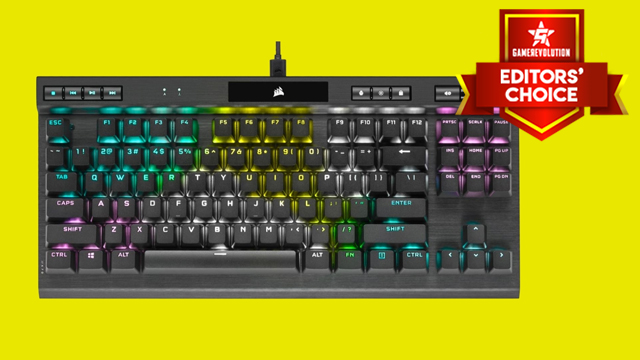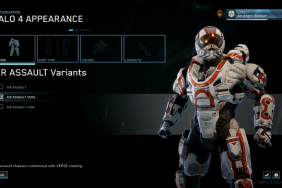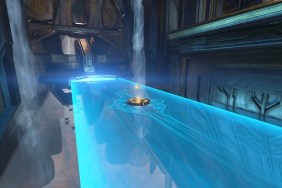CORSAIR K70 RGB TKL REVIEW.
What do you get when you combine all of my most-wanted tenkeyless features into a single keyboard? The answer is the Corsair K70 RGB TKL. Right from the top, I’ll admit that this product has blown me away. Corsair has crammed a whole lot of gamer-focused tech into this board in an effort to check all the boxes. For the most part, it’s a huge success, though there is one area that I’m not entirely convinced by.
Oozes premium quality
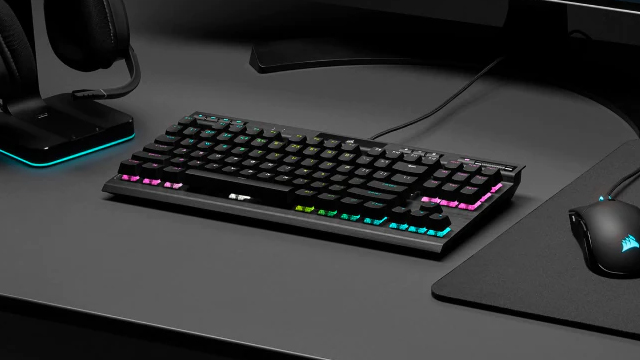
As I’ve come to expect from Corsair, the K70 RGB TKL unboxing experience is lovely. It’s securely packaging in a well-designed, premium-feeling box and includes both the necessities like a USB-C cable and manual, as well as bonus goodies in the form of additional keycaps, a keycap puller, and more.
Buy the Corsair K70 RGB TKL on Amazon
As with all products, size and weight are the first things I noticed. As a tenkeyless, this board is narrower, forgoing the number pad for a more compact footprint on the desk. It’s also hefty, giving the sense of quality and sturdiness. It certainly feels robust and, like the many premium Corsair keyboards that came before it, I’m confident that it will last the test of time.
The typing test
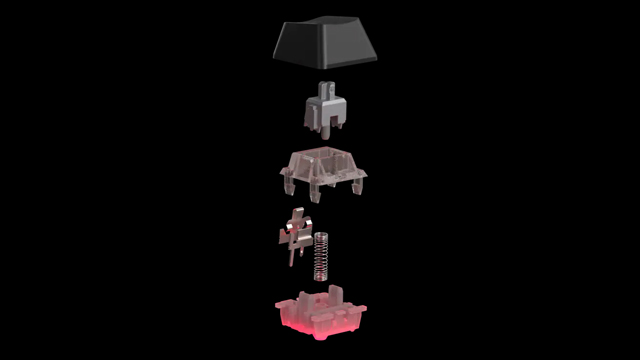
As a fan of linear key switches, due to their nice feel but low sound, the Cherry MX Reds provided in my sample combine with the plate and keycaps to generate a more bassy “thoc” than the Reds in my (non-Cherry) HyperX daily driver. Of course, the true test in the mechanical typing experience are the stabilized keys. Happily, these are all rock solid with no wobble or rattle sound. For a stock, mainstream keyboard, this is absolutely top-tier for typing sound and feel.
The K70 RGB TKL also uses a standard layout, meaning the keycaps can be swapped out for some more colorful options. However, I wouldn’t be surprised to see users stick with the stock PBT keycaps as they are incredibly high quality. Corsair has really nailed hitting the trends here, with key switches and keycaps clearly top of the line.
An optimal tenkeyless
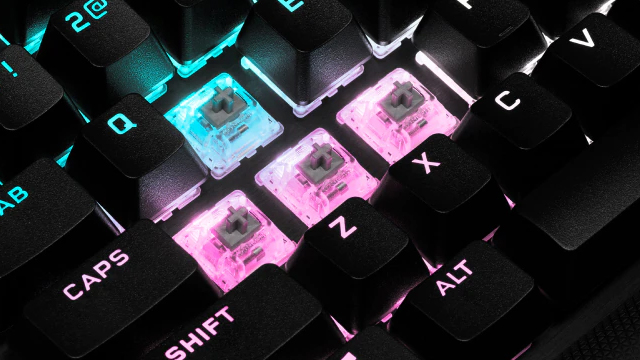
Though the K70 RGB TKL is narrow for the tenkeyless layout, it’s still quite tall. This is a great use of space, with media keys and a volume scroll all situated at the top of the board. While being compact on the horizontal is important for giving the mouse more room to swing, the vertical height can still be expanded to offer more functionality. This is a good decision by Corsair.
USB-C is obviously welcome and, while the port is a little recessed and could limit access by some third-party cables, it’s wide enough for all of the wires I tested.
Plugging the Corsair K70 RGB TKL into a system immediately greets the user with fantastic RGB lighting illumination. It should go without saying that Corsair knows how to deliver on lighting, after many keyboard iterations and years of experience. RGB customization is available on the board itself without software, though the iCUE app is needed for more advanced personalization. Users will also need iCue to fully tweak the board’s functions. There’s a lot to play with in the software and I’m impressed by the layout and ease of use, despite the many options.
Pro-focused features
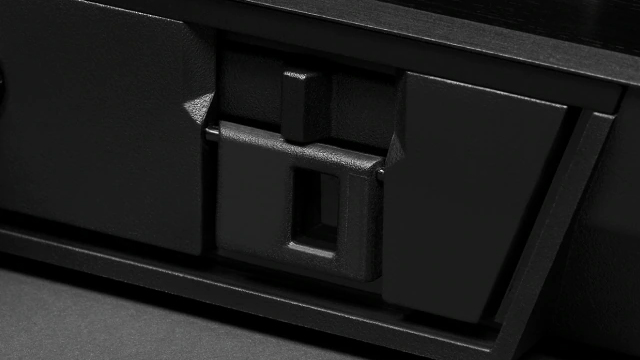
A physical Tournament Mode switch is found on the top side of the keyboard, making it quick and easy to flip between standard and TM before locking it in place. While regular users might not get too much use out of this function, it’s sure to come in clutch for competitive players, especially those attending in-person events where Tournament Mode easily shows that macros or any other advanced functionality have been disabled.
Another function that all but the most competitive of players might not notice is the Corsair K70 RGB TKL’s claimed 8,000 Hz polling rate. This is a highlighted feature in the marketing materials and promotional ads, but I’m not entirely convinced that it makes a tangible difference in a keyboard like this. I certainly didn’t notice any difference while playing Call of Duty: Black Ops Cold War and Apex Legends and switching between the usual standard 1,000 Hz and 8,000 Hz. While it may be more noticeable in a mouse — which I’ll be testing soon with the Corsair Sabre RGB Pro — I can’t personally perceive the benefits of the Axon “8,000 Hz Hyper-Polling” tech.
Corsair K70 RGB TKL Review: The final verdict
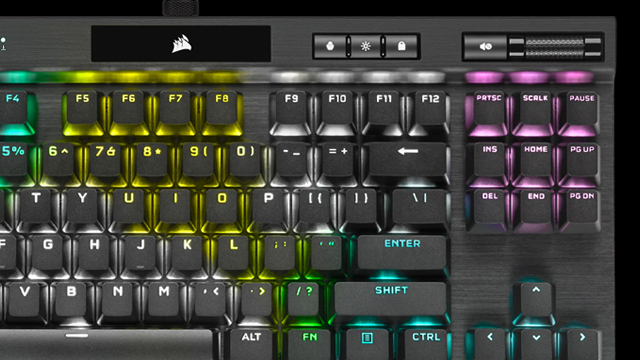
At $139.99, the Corsair K70 RGB TKL has a price tag that places it at the higher-end of mainstream tenkeyless offerings. However, its flawless delivery of key features, combined with interesting 8,000 Hz tech that (at the very least) helps to keep it future-proof, in addition to the fantastic build quality and software support, successfully meld together into one of, if not the best, TKL offerings around.
K70 RGB TKL review unit was provided by Corsair.
